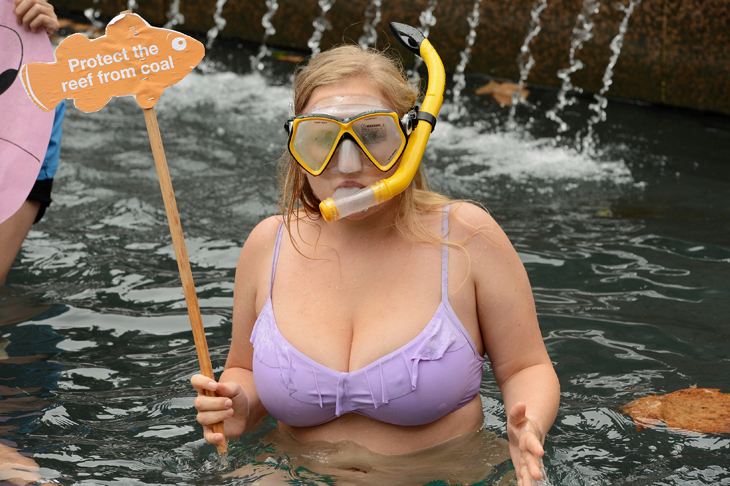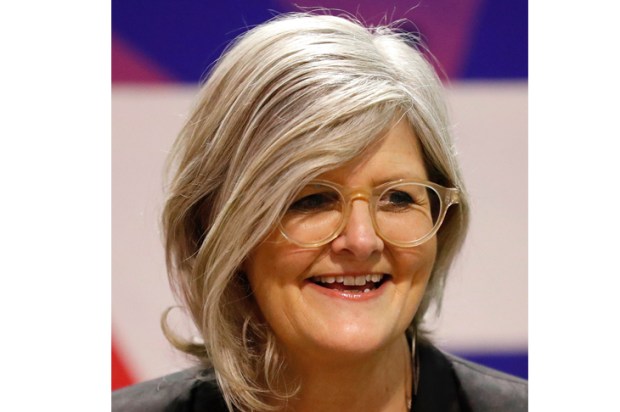The High Court will soon have the opportunity of demonstrating that traditional academic freedom and freedom of expression are still alive in Australia. The decision they hand down in Peter Ridd v. James Cook University will rank in importance with the Court’s unanimous decision concerning Cardinal Pell, reaffirming the presumption of innocence and that guilt be proved beyond reasonable doubt.
How wise our Founders were in designing our High Court as not only a federal and constitutional court but also a general court of appeal.
The Ridd decision will hopefully be seen as a landmark reaffirmation of the university as understood when the University of Sydney was opened on Australian soil with buildings recalling Oxford and Cambridge and under the motto Sidere mens eadem mutato, ‘The same learning under new stars’. Yet the Institute of Public Affairs (IPA) has named this university, along with James Cook University (JCU), as among those most hostile to free speech.
Although Ridd worked at JCU for 27 years, including time heading its Marine Geophysics Laboratory, the university terminated Ridd’s employment on the ground that in criticising views that the Great Barrier Reef (GBR) is in terminal decline, he committed a string of Code of Conduct offences. These included going ‘to the media… in a way that was not collegial’ and that by twice emailing his wife, he failed ‘to comply with directions regarding confidentiality’.
Another was that in attaching a newspaper article about the case in one email to a former colleague about a technical matter, with the subject line ‘for your amusement’, he was guilty of ‘satirising’. This recalls Beijing’s infamous ban on puns.
The Code provides that it ‘is not intended to detract from Clause 14’ which requires JCU to act in a manner ‘consistent with the protection and promotion of intellectual freedom’, including the right of staff to participate in public debate and express opinions and ideas related to their respective fields of competence.
Fortunately, Ridd was not alone in his battle. Funded by thousands and supported by a top team including Jennifer Marohasy, Morgan Begg and Gideon Rozner from John Roskam’s IPA, his counsel Stuart Wood QC won the opening case before Judge Salvatore Vasta who tellingly observed that the university did not understand ‘the whole concept of intellectual freedom’.
But in what Morgan Begg describes in a legal epilogue to the IPA’s superb 2020 book Reef Heresy? as ‘a devastating blow to intellectual freedom’, the Full Federal Court upheld JCU’s appeal.
The surprise was that the 2:1 majority ruled that whatever academic freedom once meant, it had evolved to take into account contemporary circumstances ‘including the internet, social media and trolling, none of which informed the view of persons such as J.S. Mill, John Locke, Isaiah Berlin and others who have written on the topic’. With ‘student demands’ for ‘content warnings and safe places’, the meaning of academic freedom had changed, ‘often leaving us in uncharted territory’. Actually, these factors are about as relevant to academic freedom as daylight saving, spiritualism, bimetallism, anthropogenic global warming or gender fluidity. Anyone seeking an antidote to such thinking should read this book in which Peter Ridd makes many evidence-based points in a language understandable to the laity. Three are crucial.
First, while the GBR remains, for Ridd, the world’s ‘most special and awe-inspiring natural environment habitat’, he insists that neither is it massively damaged nor is its future bleak. While nothing much is known about the GBR before 1960, there is, he says, no evidence of a major decline. Indeed, most of the alleged major threats have been exaggerated. And as to global warming, corals grow faster in warmer water. His advice is to remain concerned about the GBR, but not alarmed
His second point applies far beyond the GBR and should be appreciated by politicians, commentators, other elites and the occasional Swedish schoolgirl who insist we must follow ‘the science’.
On that the editor of one of the world’s oldest and best-known general medical journals, the Lancet expresses an increasingly known but shocking truth, that ‘much of the scientific literature, perhaps half, may simply be untrue’.
Worse, despite the fact that all such literature is peer-reviewed, we have no idea which half is unreliable.
A few years ago, all academics were ordered to produce peer-reviewed articles. This was even extended to the lawyers, a fractious lot who rarely agree on anything and whose senior branch are bound to accept any brief under the cab rank rule.
Sometimes, instead of replication, correlations will be cited which are usually spurious. A celebrated example was the alleged correlation between the Bank of England bank rate and the incidence of diarrhoea in the Scottish Highlands. Both were said to go up and down hand in hand. Yet when it comes to floods and droughts, politicians and activists will often allege some correlation with anthropogenic global warming.
There is but one test for scientific experiments and that is the ability of other scientists to replicate the experiment. And at least half of scientific work cannot be so replicated.
Fortunately for civilisation, engineering is much more rigorous, otherwise buildings and dams would collapse and planes fall out of the sky. Yet our politicians and other elites have agreed to hold back if not ruin our economy on the basis of a climate science almost all of whose literature is unreliable.
Ridd’s third point is summed up in the book’s dedication ‘to the farmer’. He points to the seriously deleterious consequences of alarmist scientific reports about the GBR on farmers, miners and North Queenslanders made to suffer financially by weak politicians. Ridd’s valiant crusade for the truth is at the very basis of Western democracy and our freedom.
Got something to add? Join the discussion and comment below.
Get 10 issues for just $10
Subscribe to The Spectator Australia today for the next 10 magazine issues, plus full online access, for just $10.
Reef Heresy? by Peter Ridd is available from Connor Court, $39.95, pp. 304 ISBN: 9781922449306
You might disagree with half of it, but you’ll enjoy reading all of it. Try your first month for free, then just $2 a week for the remainder of your first year.














Comments
Don't miss out
Join the conversation with other Spectator Australia readers. Subscribe to leave a comment.
SUBSCRIBEAlready a subscriber? Log in